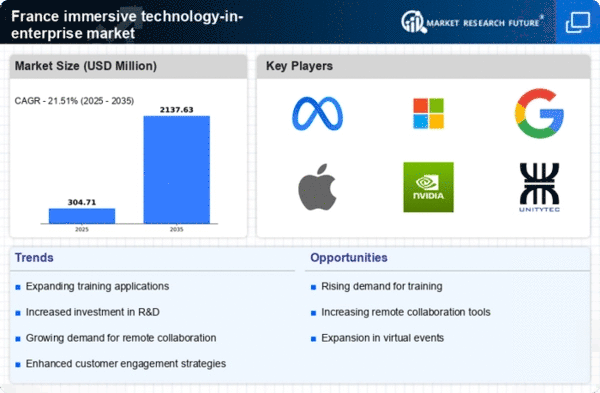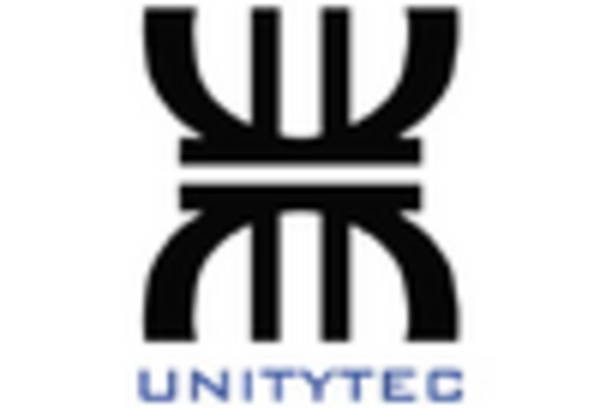Increased Investment in R&D
Investment in research and development (R&D) within the immersive technology-in-enterprise market is on the rise in France. Companies are recognizing the potential of immersive technologies to transform various business processes, leading to increased funding for innovative projects. This trend is supported by government initiatives aimed at fostering technological innovation, which may provide financial incentives for businesses to explore immersive solutions. As a result, the market is expected to see a proliferation of new applications and use cases, potentially enhancing competitiveness and operational effectiveness across various sectors.
Regulatory Support for Innovation
Regulatory frameworks in France are evolving to support innovation in the immersive technology-in-enterprise market. The government is actively promoting the adoption of advanced technologies through various initiatives and funding programs. This regulatory support is likely to encourage businesses to invest in immersive solutions, as they can benefit from favorable conditions and resources. Additionally, compliance with emerging regulations related to data privacy and security is becoming a priority, prompting enterprises to adopt immersive technologies that align with these standards. This supportive environment may facilitate the growth of the market, as companies seek to innovate while adhering to regulatory requirements.
Advancements in Hardware and Software
Technological advancements in hardware and software are significantly influencing the immersive technology-in-enterprise market. In France, the development of more sophisticated VR headsets and AR devices is making these technologies more accessible and user-friendly. Enhanced processing power and improved graphics capabilities are enabling enterprises to create more immersive experiences. Furthermore, software solutions that support these technologies are evolving rapidly, with a focus on user experience and integration with existing enterprise systems. This evolution is likely to drive adoption rates, as businesses seek to leverage cutting-edge tools to improve training, design, and operational efficiency.
Focus on Enhanced Customer Experience
The immersive technology-in-enterprise market is increasingly focused on enhancing customer experience. French enterprises are leveraging immersive technologies to create engaging and interactive customer interactions, which can lead to higher satisfaction and loyalty. For instance, retail businesses are utilizing AR applications to allow customers to visualize products in their own environments before making a purchase. This trend is indicative of a broader shift towards customer-centric strategies, where immersive technologies play a crucial role in differentiating brands in a competitive marketplace. The potential for increased sales and customer retention is driving investment in these technologies.
Growing Demand for Remote Work Solutions
The immersive technology-in-enterprise market is experiencing a notable surge in demand for remote work solutions. As organizations in France increasingly adopt flexible work arrangements, immersive technologies such as virtual reality (VR) and augmented reality (AR) are being integrated into their operations. This shift is driven by the need for effective collaboration tools that can bridge the gap between remote teams. According to recent data, the market for immersive technologies in enterprise applications is projected to grow by approximately 25% annually in France. Companies are investing in these technologies to enhance productivity and maintain employee engagement, indicating a strong trend towards immersive solutions that facilitate remote interactions.

















